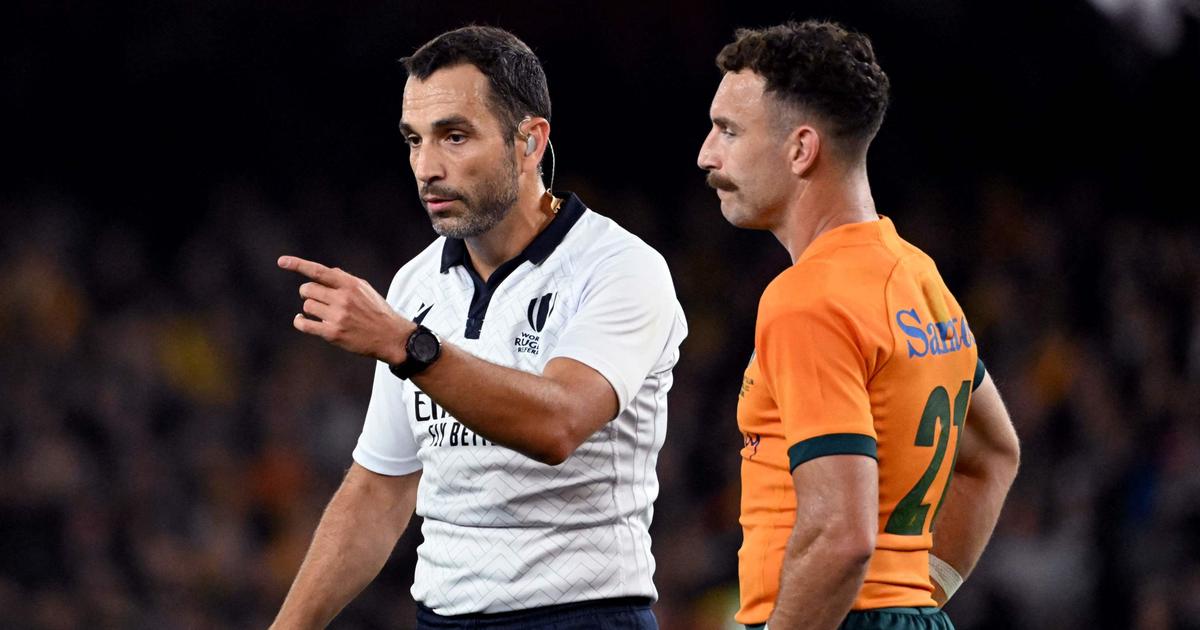MAINTENANCE – At the beginning of the second week ago, the French referee gave the Wallabies opener a time-saving penalty just seconds before the end of the test match against New Zealand. A decision made at the beginning of the All Blacks’ triumph over the wire had infuriated both the players and the Australian media, which led to the victory for the All Blacks.
On Monday evening, during Rugby Night, Mathieu Raynal returned for the first time to his controversial decision that occurred during the match between Australia and New Zealand a fortnight ago. He was elected as the Best Referee of the Top 14 for the 2021-2022 season by his peers, as well as by the players and coaches of the Top 14.
Le Figaro: Do you accept your decision which changed the fate of the first test between Australia and New Zealand?
Mathieu Raynal: The answer is that I always presume what I do. I fully and completely accept this decision. I possessed all of the essential justifications for taking it. I am aware that this is a decision that will cause people to discuss it, that will generate a lot of noise; nonetheless, I make an effort to detach myself from this background of pressure to act in a manner that I believe to be the most equitable. This is the most important aspect of my job. And while that can at times give rise to conflicts, frustrations, and polemics, I cannot help but presume that it does.
You only applied rule 20…
That is correct; that is a rule. (Smile) But things get tricky when you play rugby. There is the rule itself, as well as the intention behind the regulation. When we’re at the rugby, we can always talk. Things are rarely black or white, but rather shades of grey.
“I did not come to this conclusion on my own; rather, the player in question coerced me into doing so.” It’s not like anything else. «
It was a brave decision at this point in the game…
Even though it happens so quickly, I am not rendered unconscious. When I decide this, it indicates that I have good reasons for doing so. In this particular instance, I cautioned a player (the Australian fly-half Bernard Foley) a total of five times, two of which were official warnings, to kick the ball in. I have the right to be heard. I made myself clear. At a certain point, I was powerless to stop it. This choice was not mine to make; rather, it was imposed upon me by a player who I was competing against. It’s not like the others. I was no longer provided with a choice. Once I get started, I have no choice but to complete the task in its entirety. However, neither bravery nor difficulty is required. It is part of my job. The procedure that I followed has my whole and utter faith.
Do you think many referees would have taken it?
I do not know. That does not describe me at all. I act in a manner that I believe to be the most equitable in the field, and I take responsibility for it afterward. However, it is not my place to direct the actions of other people.
“Once I leave the field, I am finished with my duties. When the choice is being debated, I have no intention of participating in the discussion in any way.
This earned you some criticism but also a lot of support…
To tell you the truth, I deleted the journal as well as all of the social networking apps. I simply retained Candy Crush and the hour to keep myself sane, not so that I could keep up with everything that was going on (laughter). Because I was aware of the effect it has, I made it a priority to protect myself from it. It was the most prudent course of action for me to concentrate on the second test that was played between the two teams (at which he served as a linesman, Editor’s note). What occurs afterward has nothing to do with me in any way. When I leave the field, my work is finished for the day. When the choice is being debated, I have no intention of participating in the discussion in any way.
Have you discussed this with Australia coach Dave Rennie?
After the second test, which took place the previous Saturday in Auckland, he came to visit me in the dressing room to have a conversation with me on both his and Australia’s behalf. This way of doing things was quite thoughtful of you. Once the tension of the game had subsided, we engaged in a conversation that was both quite sincere and very honest. Our interactions are completely typical and unremarkable. He told me that he was pleased with the officiating during the entire match, but that he did not agree with the conclusion that was reached. This makes perfect sense to me because I don’t have access to the whole truth. But I can assure you that this will be a calm and civilized conversation between the two of us.


















































































